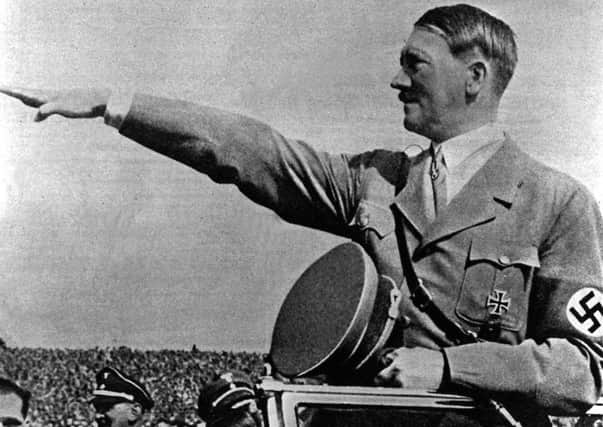UK is not facing a Versailles-style humiliation '“ but EU must still tread carefully


(December 13, ‘Germany seeks defeat of Britain’).
He confesses his ignorance of what happened between the first and Second World War and to what he claims to be the “rise of Germany from the ashes”.
Firstly to say that there were not ashes in 1918 from which to rise militarily; in fact the allies were so beleaguered by the conflict (especially after Russia’s exit from the war in 1917) that they allowed the surrendered German army to march home in 1918.
Advertisement
Hide AdAdvertisement
Hide Ad

Such was the desire on all sides for an end of the conflict that the Armistice was signed without consideration of what the actual peace treaty would later look like.
It was the Treaty of Versailles after the guns had fallen silent that really broke down German resolve as the allies openly sought to repress its ambition as a nation.
The failure of foresight of British, French and American politicians led to a bitter and broken Germany. It wasn’t until the economic decline after the 1929 crash that the rise of Nazi extremism took hold and Hitler overthrew by election the most socially progressive (yet most impoverished) state in Europe.
The Germans themselves had no desire for invading the UK, evidenced by the well-documented fact that the Panzer regiments had no strategic plan at Dunkirk, allowing the expeditionary force to make a daring escape.
Advertisement
Hide AdAdvertisement
Hide AdIf not for the resolve of Winston Churchill we would have likely sought terms with them at that point. I do not dispute that Nazism had to be utterly destroyed, but with it the causes of its rise had to be tackled in the post-Second World War period so that the allies could not repeat the mistakes of 1918.
Unfortunately the EU risks a similar outcome if it continues to disrespect the UK in a similar manner; however, let me be clear that the restrictions on military and economic life imposed on Germany in the inter-war period were much harsher than what the UK is currently being offered.
The comments made about the Marshall aid given to states after the war are inaccurate. Britain was a recipient of aid – not a donor.
The USA wanted a stable and prosperous Europe so as not to repeat the past mistakes and to stem the tide of communism as you correctly pointed out.
Advertisement
Hide AdAdvertisement
Hide AdThe UK was in fact the highest net recipient of such aid yet successive socialist government policies after the war squandered these advantages.
Germany and Japan only did so well economically because they made the correct policy decisions and ditched their military aggression for economic empowerment – they made trade treaties not war plans. Ted Heath recognised this and it was his driving ambition behind joining the European community.
Therefore Germany was not a rival post WW2, it was a model to behold economically and a partner in building a pro-free trade Europe.
It has just been reported that Theresa May’s backstop concession was supported by Germany and Austria. This recent evidence seems to show a closer relationship with these former Teutonic enemies than with other current European states.
The rhetoric of us standing alone against a belligerent Germany is no longer appropriate for this century.
Jay Burbank, Templepatrick, Co Antrim